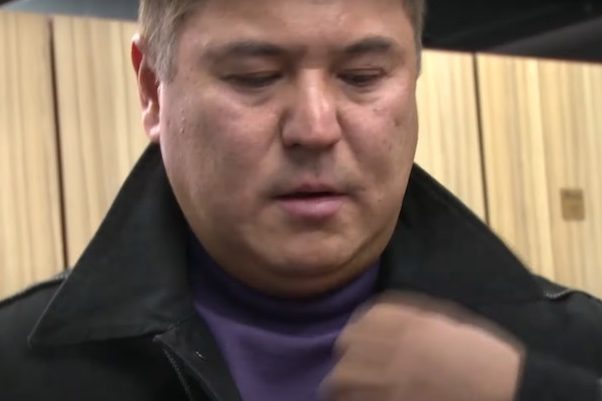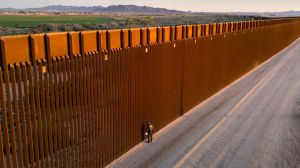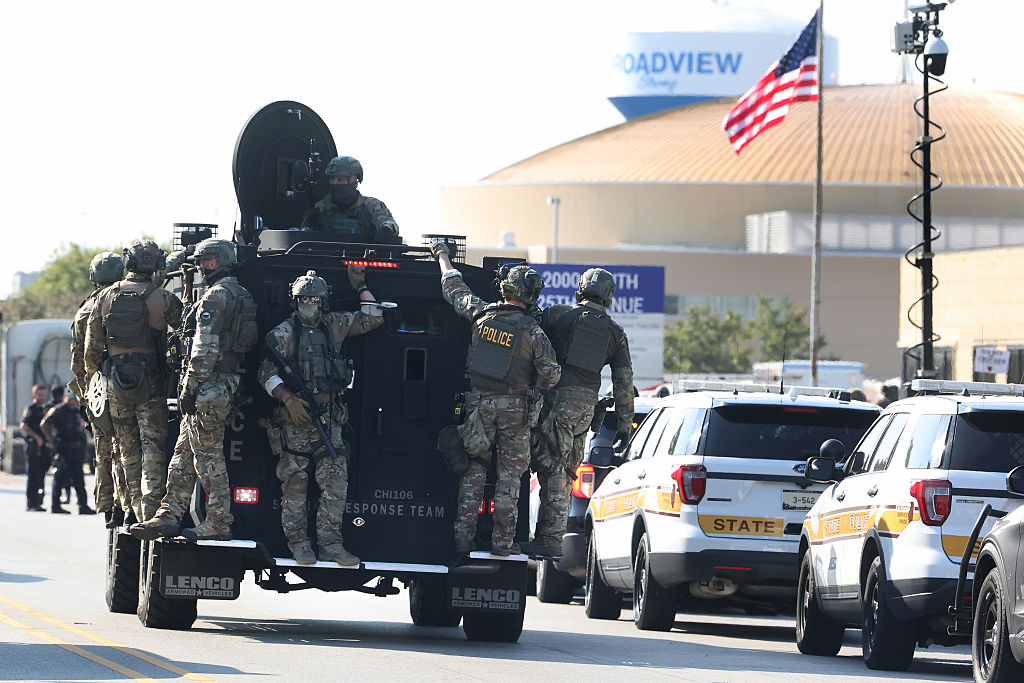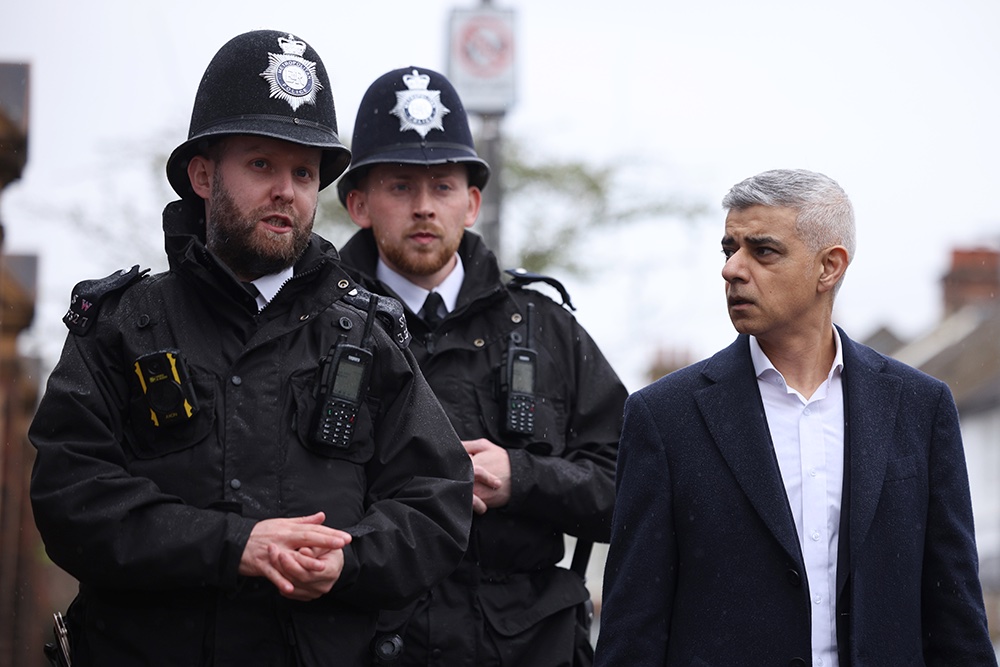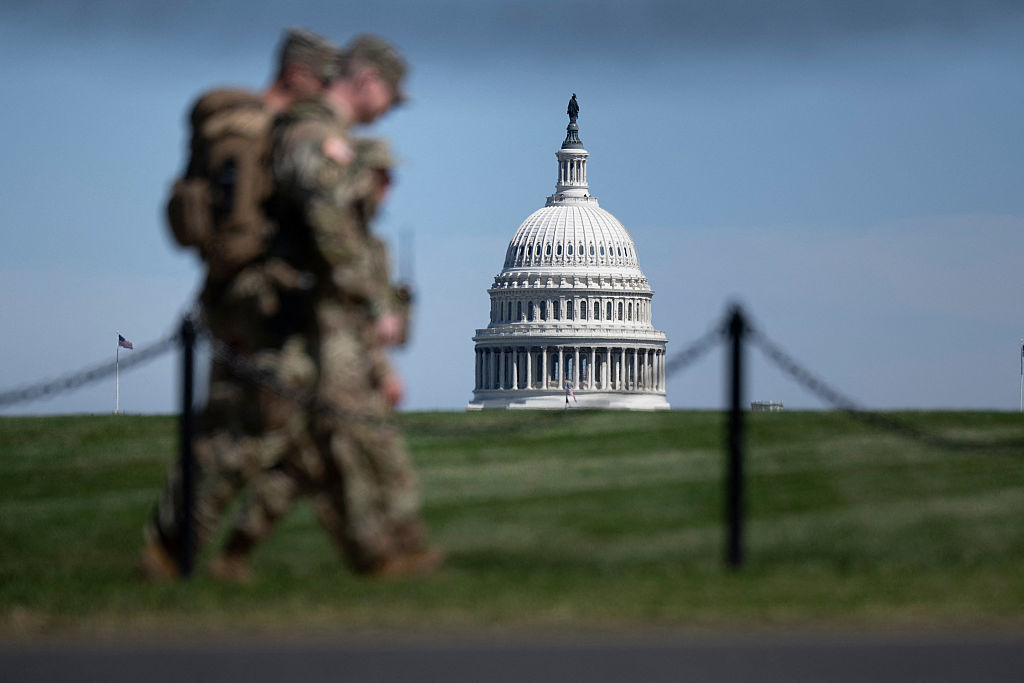Such is the globalization of the modern underworld, that the fate of a gangster you may never have heard of, in a country of which you may know little, may actually matter to you. I’d suggest this is true of the Kyrgyz godfather Kamchy Kolbayev, who was killed on Wednesday by a bullet in the head, during a police operation to arrest him in the capital, Bishkek.
Kolbaev was widely recognized as the most powerful gangster in the Central Asian nation of Kyrgyzstan. Born in 1974, he took fullest advantage of the political and economic disruption that followed the collapse of the Soviet Union in the 1990s to establish a criminal empire that spanned smuggling drugs (notably heroin from Afghanistan), protection racketeering and money laundering. Although he split his time between Bishkek, Moscow and Dubai — and it may be worth noting just how many gangsters from across the post-Soviet space have businesses or residences in the United Arab Emirates — he was largely able to operate with impunity at home.
He had been arrested and sentenced to twenty-five years for attempting to kill a rival gangster in 2000, but six years later, after being transferred out of a high-security prison, he was able to escape. Nonetheless, he was able to remain active and at large until 2012, when he was again arrested and charged with establishing a criminal group, possessing weapons and drugs, using force against a government official and kidnapping. Nonetheless, he only received three years for that litany of crimes, his previous escape was essentially ignored, and he was out again in 2014, having been able to continue to run his criminal enterprise from behind bars.
He was then arrested again in 2020, but in connection with allegations that he had been involved in laundering more than 250 million som ($2.8 million), his family reportedly handed the government 49.6 million som ($560,000) and in 2021, he was duly released on what seems to have been an indefinite and unrestricted bail. A bargain, some might say. Since 2011 Kolbaev had been designated under the US’s Foreign Narcotics Kingpin Designation Act. And since 2014 the State Department had been offering a reward of up to $5 million for information leading to his arrest. But even that didn’t seem to put much of a crimp on his lifestyle.
It is widely assumed that the secret of Kolbaev’s success was not just his reputation for violence (the final, fatal arrest warrant stemmed in part from the suspicion he was behind the murder of another crime boss, Chingyz Zhumagulov, known as “Doo” or “Chingyz the Giant,” who was stabbed to death by a fellow prisoner last year) but also his political connections. From the first, after all, Kolbaev cultivated senior government figures. In 2007, it was the then-interior minister who personally intervened to have the arrest warrant for his prison escape waived.
The official line on Kulbayev’s death is that when police tried to serve an arrest warrant, he and his bodyguards shot at them, and he was killed in the ensuing firefight. Some have inevitably questioned whether Kolbaev would really have taken on heavily-armed police special forces in armored vehicles, and there is the inevitable suspicion that he was marked for death because he knew too much and was potentially embarrassing. He had, for example, been seen last month attending the wedding of the son of the former speaker of parliament, along with ex-president Sooronbai Jeenbekov and the former deputy head of the Customs Service.
Why, though, does any of this matter outside Kyrgyzstan? First of all, it marks a further decline of the traditional Soviet Vorovskoi mir, the “Thieves World.” Largely emerging in the Gulag labor camps, this ruthless subculture, with its own customs and even language, has largely disappeared from Russia. Instead, its last bastions have been in Central Asia and the South Caucasus. Kolbaev had bought into the Vorovskoi mir and in 2006 had been “crowned” as a Vor v zakone (“thief within the code”) with the support of Vyacheslav “Yaponchik” Ivankov and Aslan “Ded Khasan” Usoyan, two of the most powerful and famous vory of their generation. Ivankov was assassinated in 2009, Usoyan in 2013, and although there are lesser vory still around in Kyrgyzstan, this is really the end of the Vorovskoi mir there, too.
If the vory were the traditionalist Don Corleones of the post-Soviet underworld, their successors, known as avtoritety, “authorities,” are criminal entrepreneurs. They are typically flexible businessmen happy to do whatever makes the most money safely. Kyrgyzstan has played a significant role as a transit country along the so-called Northern Route for trafficking Afghan heroin, into and through Russia. With it becoming much harder to move drugs to Europe via Russia, as previous routes via Ukraine are now closed, this trade is shrinking. Kolbaev had been resistant to pressures to develop both new narcotic businesses (with a growing domestic supply of synthetic drugs) and new trafficking routes, and his death is likely to accelerate these processes. Kyrgyz criminals are already working with their Kazakh counterparts to expand routes to the Caspian Sea and then towards Europe via the South Caucasus and Turkey or, if trade on the Black Sea recovers, via Romania and Ukraine. Any temporary dislocations to heroin routes supplying western countries will be quickly repaired.
Finally, Kolbaev was allegedly opposed to working with Russian criminals to smuggle sanctioned materials and components northwards (albeit not out of any moral or political compunctions, just a concern that this might draw greater attention to his drug operations). His death opens the way to more organized sanctions busting, especially given that there have been plausible suggestions that UKMK, Kyrgyzstan’s notorious State Committee for National Security or political police, are involved in this illegal business. Its head, Kamchybek Tashiev, recently called for tough actions against gangsters — such as Kolbaev.
The rise of more entrepreneurial godfathers, new drug routes to Europe and more active sanctions-busting on behalf of the Kremlin. Given that this is a country which the Transparency International Corruption Perceptions Index rates as more corrupt even than Russia, what may seem like a bloody victory for law and order could prove to be the opposite.
This article was originally published on The Spectator’s UK website.



